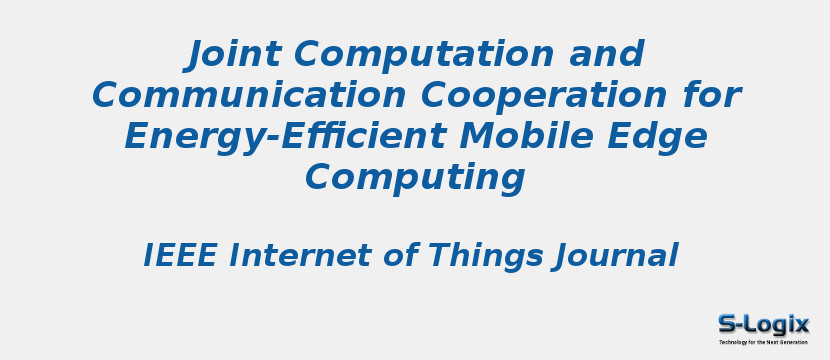Research Area: Edge Computing
This paper proposes a novel user cooperation approach in both computation and communication for mobile edge computing (MEC) systems to improve the energy efficiency for latency-constrained computation. We consider a basic three-node MEC system consisting of a user node, a helper node, and an access point (AP) node attached with an MEC server, in which the user has latency-constrained and computation-intensive tasks to be executed. We consider two different computation offloading models, namely, the partial and binary offloading, respectively. For partial offloading, the tasks at the user are divided into three parts that are executed at the user, helper, and AP, respectively; while for binary offloading, the tasks are executed as a whole only at one of three nodes. Under this setup, we focus on a particular time block and develop an efficient four-slot transmission protocol to enable the joint computation and communication cooperation. Besides the local task computing over the whole block, the user can offload some computation tasks to the helper in the first slot, and the helper cooperatively computes these tasks in the remaining time; while in the second and third slots, the helper works as a cooperative relay to help the user offload some other tasks to the AP for remote execution in the fourth slot. For both cases with partial and binary offloading, we jointly optimize the computation and communication resources allocation at both the user and the helper (i.e., the time and transmit power allocations for offloading, and the central process unit frequencies for computing), so as to minimize their total energy consumption while satisfying the users computation latency constraint. Although the two problems are nonconvex in general, we develop efficient algorithms to solve them optimally. Numerical results show that the proposed joint computation and communication cooperation approach significantly improves the computation capacity and energy efficiency at the user and helper, as compared to other benchmark schemes without such a joint design.
Keywords:
Author(s) Name: Xiaowen Cao; Feng Wang; Jie Xu; Rui Zhang and Shuguang Cui
Journal name: IEEE Internet of Things Journal
Conferrence name:
Publisher name: IEEE
DOI: 10.1109/JIOT.2018.2875246
Volume Information: Volume: 6, Issue: 3, June 2019,Page(s): 4188 - 4200
Paper Link: https://ieeexplore.ieee.org/document/8488502
